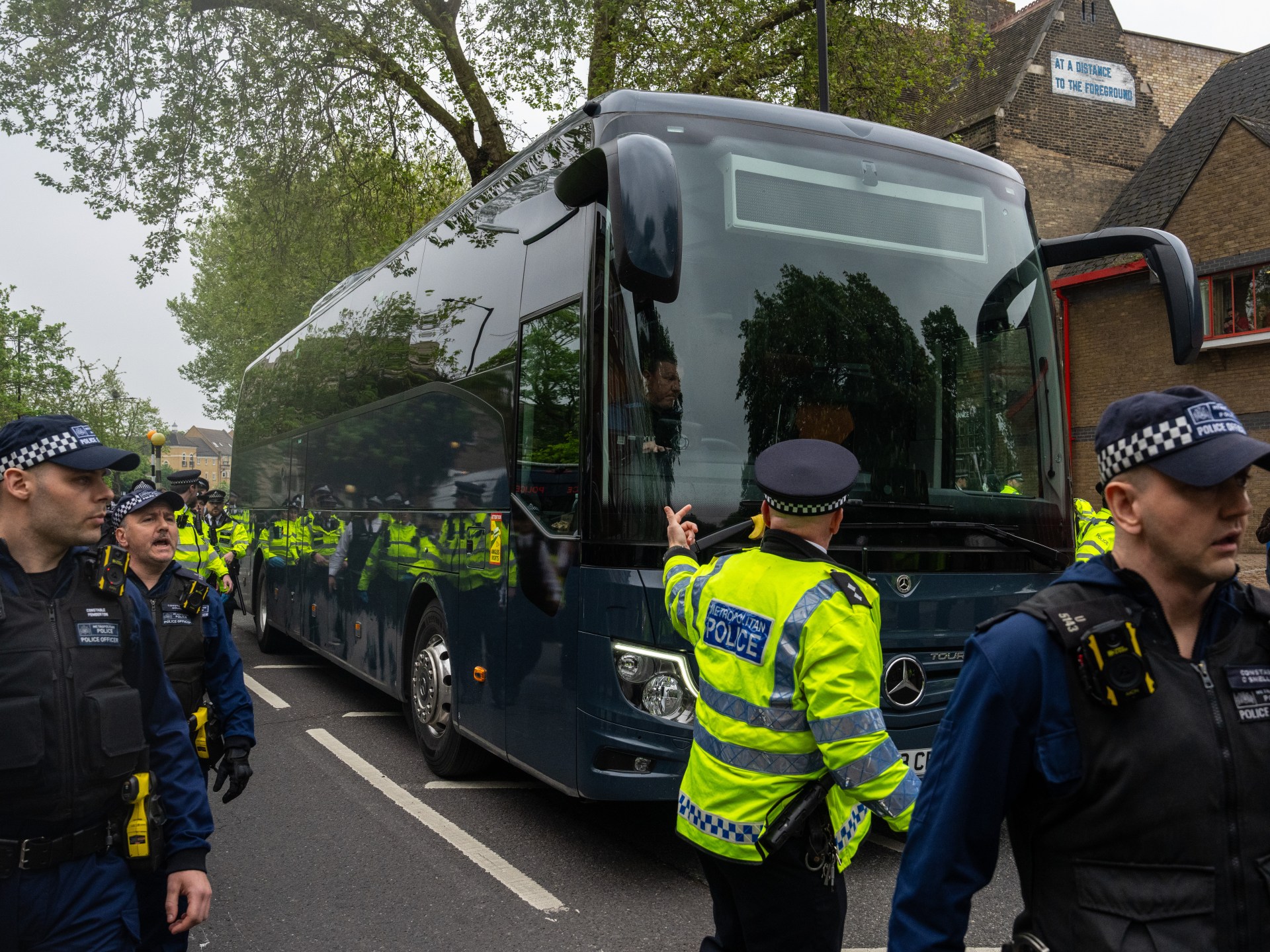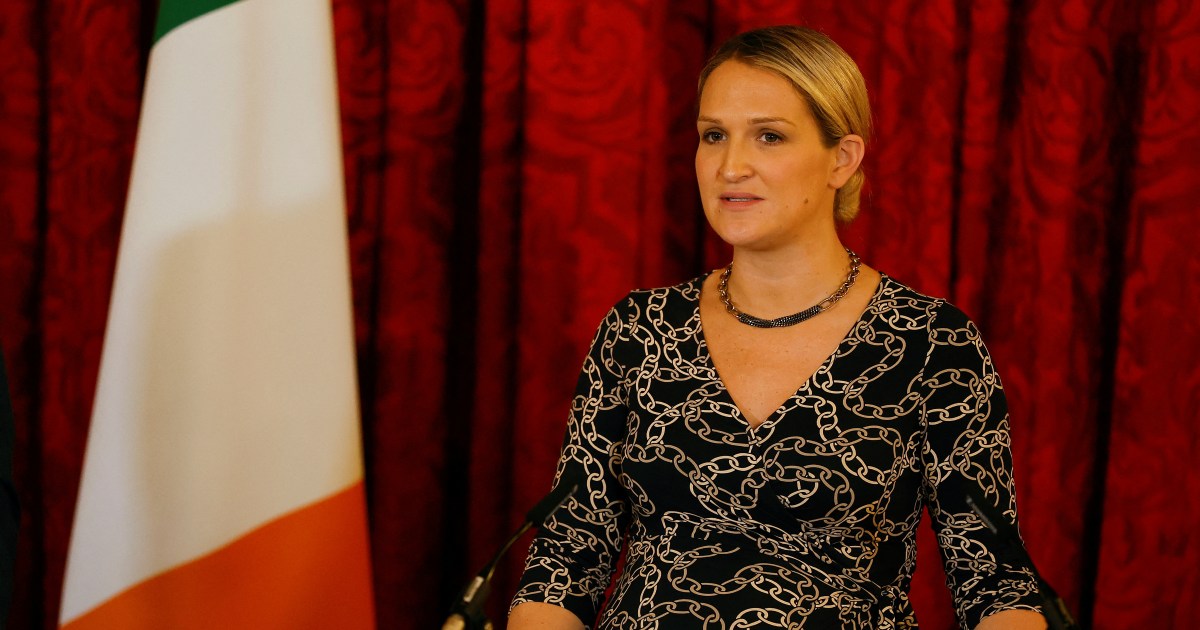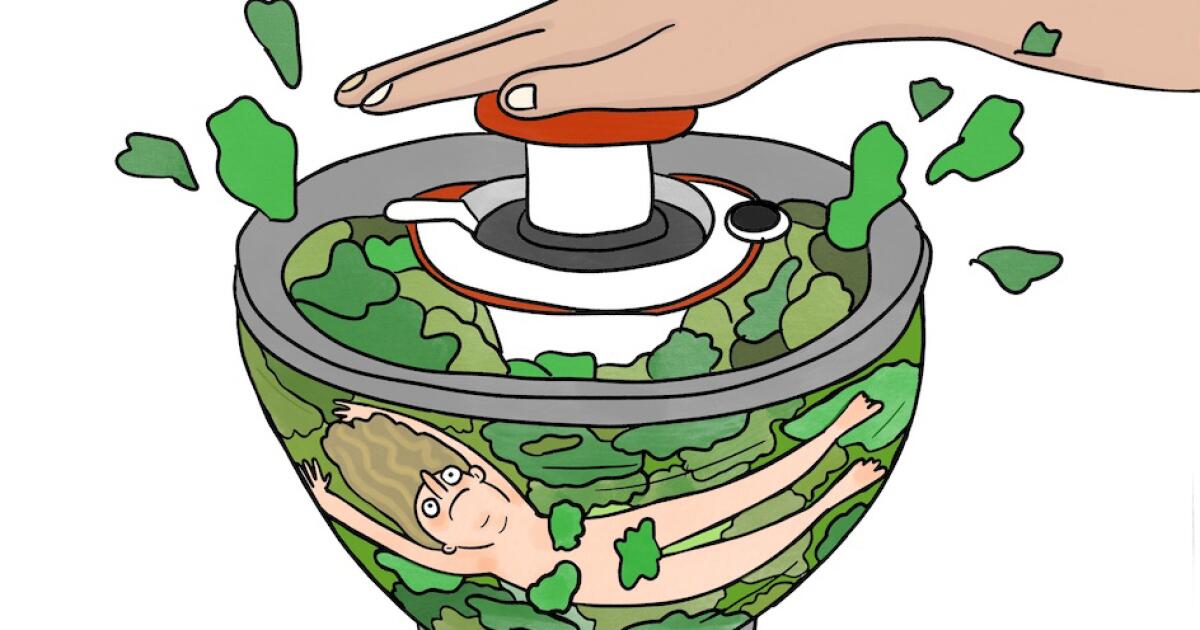World
Paris, Rome call for deal with other European states to stem migration
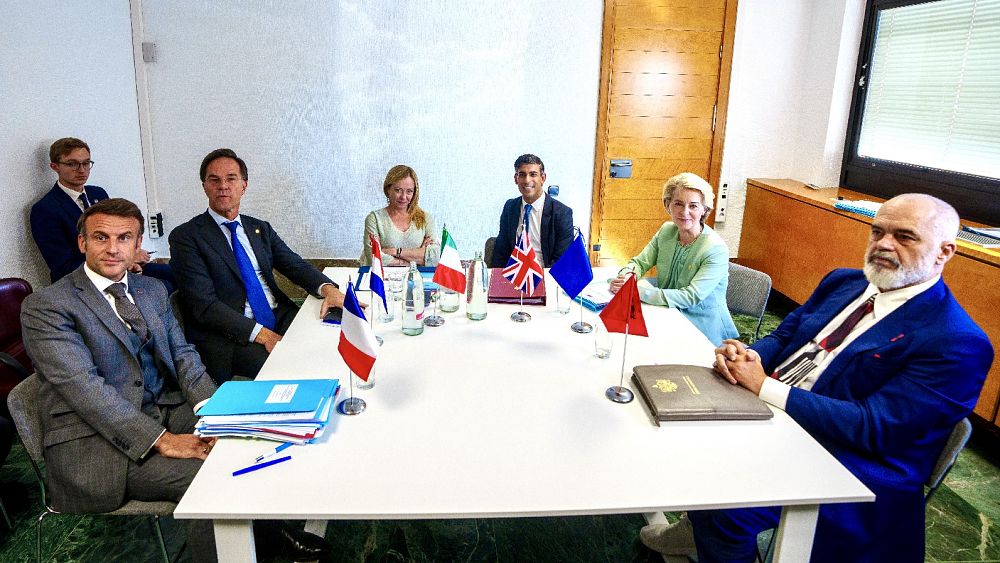
Migration was not meant to be discussed at the European Political Community summit on Thursday, but just like it does at the EU level, it quickly found its way high up on the agenda.
Leaders from Albania, Britain, France, Italy, the Netherlands and the European Commission chief took part in a migration meeting held on the sidelines of the EPC summit in Granada, Spain, where discussions on multilateralism, climate and digital challenges were meant to dominate the agenda.
They elaborated a five-point document that they will work on over the coming months with the aim of finalising some sort of agreement during the next EPC summit scheduled to be held in the UK in the spring.
Outreach will be made to other EPC countries to build a coalition of the willing, French President Emmanuel Macron said.
“I consider that the EPC is precisely a relevant space to fight against migration. Firstly because there are several countries of origin among the Western Balkans and cooperation makes it possible to significantly reduce irregular immigration.”
“We want to have a much more coordinated approach with countries of origin and countries of transit. This is the condition for being effective because we clearly see that we have policies that are desynchronized or divergent” weakening efforts to tackle the issue, he added.
The discussion on Thursday came just a day after EU member states finalised their position on new common rules to manage an unexpected mass arrival of asylum seekers. The so-called Crisis Regulation was the last remaining piece of the puzzle that is the New Pact on Asylum and Migration that the co-legislators – member states and Parliament – hope to negotiate and adopt before the end of this Commission’s mandate.
The difficulties in reaching consensus among member states in recent years have meanwhile led the Commission to focus more on the external dimension and to strike deals with third countries in a bid to stem the flow of irregular arrivals.
The latest, with Tunisia, saw the EU pledge to disburse €105 million to Tunisia to combat anti-smuggling operations, reinforce border management and speed up the return of asylum seekers whose applications are denied. The deal was however condemned by members of the European Parliament and humanitarian organisations over concerns about the alleged abuse of sub-Saharan migrants by Tunisian authorities.
Italy’s Giorgia Meloni, whose country had delayed the adoption of the Crisis Regulation text over language about search-and-rescue services provided by NGO Vessels in the Mediterranean Sea, told reporters upon arrival at the summit in Granada that the “EU’s aims on migration are evolving toward a more pragmatic stance, based on legality, to fight irregular migration and manage legal migrations”.
“On the external dimension the EU has to act fast,” she added.
Serbian President Aleksandar Vučić did not take part in the multilateral discussion on migration on Thursday but welcomed it nonetheless.
“I believe this is the best place because you can discuss all the issues with the people that are involved with this difficult issue,” he told Euronews.
“We needed a bit more with North African countries to be present as well but bearing in mind the place where we are, I believe that we had some good discussions on immigration issues and we are really ready to do whatever we are asked from our European partners on migration issues,” he added.
Fourty-five leaders from across Europe attended the EPC summit with two notable absences: Azerbaijan’s Ilham Aliyev and Turkey’s Recep Tayyip Erdoğan.
The situation between Azerbaijan and Armenia, Russia’s war against Ukraine and the EU’s enlargement policy also featured high on the agenda.

World
Brussels, my love? Champage cracked open to celebrate the Big Bang

In this edition, we zoom in on dwindling press freedom in Europe and check how Europe is doing 20 years after the big bang enlargement.
This week, we are joined by Olena Abramovych, Brussels correspondent for Ukrainian TV, Ricardo Borges de Castro, analyst in European and global affairs and Polish journalist Dorota Bawolek.
Panelists reflect on the big bang enlargement of the European Union that took place 20 years ago when leaders of 10 new countries presented their flags to Pat Cox, then president of the European Parliament. Despite the bumps along the way, the panel agreed it was a success.
“Even though you can say that the story has not always be rosy, over the past 20 years it has been a great story”, Ricardo Borges de Castro said.
The panel also marked International Press Freedom Day by focusing on the dwindling press freedom in the EU.
“It is very worrying and at the same time, unfortunately, not very surprising”, said Dorota Bawolek, who suffered attacks both online and offline for her reporting, and experienced censorship.
“Democracy in Europe is not living its best days at the moment. And media and media freedom is one of the victims of it”, she said.
Watch “Brussels, my love?” in the player above.
World
Video: Police Remove Dozens of Protesters from Sciences Po University in Paris

new video loaded: Police Remove Dozens of Protesters from Sciences Po University in Paris
transcript
transcript
Police Remove Dozens of Protesters from Sciences Po University in Paris
Student demonstrators had been occupying a campus building in central Paris, in protest over the war in Gaza. French police cleared the building on Friday.
-
Free Palestine. Free, free Palestine.
Recent episodes in Israel-Hamas War
World
Brazil's Lula invites Japan's prime minister to eat his country's meat, and become a believer
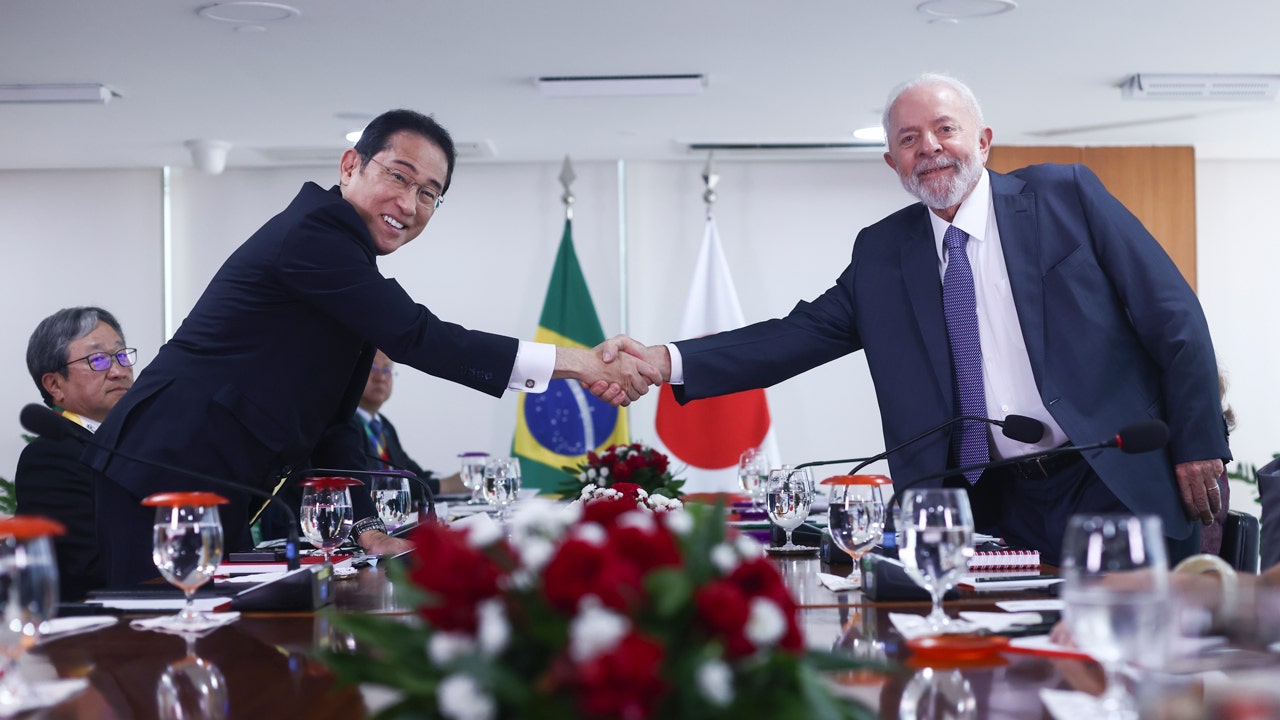
Brazil’s President Luiz Inácio Lula da Silva on Friday welcomed Japan’s Prime Minister Fumio Kishida on his first visit to the country, with the two meeting in the capital of Brasilia and the South American leader pushing his counterpart to buy his country’s beef.
Brazil had wished to seize on the bilateral meeting to push forward an agreement to open Japanese markets to Brazilian beef, a goal the Latin American country has pursued since 2005. In an appeal to the prime minister, Lula insisted he should eat at a steakhouse during his trip.
BRAZIL REASSURES FOREIGN COUNTRIES AFTER MEAT SCANDAL
“I don’t know what you had for dinner last night,” Lula said during the press conference, looking at Kishida and the Japanese delegation, then turning his attention to Vice President Geraldo Alckmin, who is also Minister of Industry, Commerce, Development and Trade. “Please, take Prime Minister Fumio to eat steak at the best restaurant in Sao Paulo so that, the following week, he starts importing our beef.”
Brazilian President Luiz Inácio Lula da Silva, right, and Japan’s Prime Minister Fumio Kishida shake hands for the media during a meeting at Planalto presidential palace in Brasília, Brazil, Friday, May 3, 2024. (AP Photo/Luis Nova)
Under Lula, Brazil has boosted efforts to export beef to international markets. Since the beginning of 2023 when Lula took office, 50 countries have lifted restrictions, mostly in Asia. According to Brazilian officials, about 70% of the beef consumed in Japan is imported, while 80% of the imports come from the U.S. and Australia.
“Our meat is cheaper and of better quality than the meat you buy. I don’t even know the price, but I’m sure ours is cheaper, and of extreme quality,” Lula added.
Brazil exported more than 2 million pounds of beef in 2023, barely breaking the record set the prior year, according to official trade data. The nation is the world’s largest beef exporter, shipping to over 90 countries. The sanitary conditions of the cattle industry are now “much better than in 2005, particularly regarding recognition of areas free from foot-and-mouth disease without vaccination,” Eduardo Paes Saboia, the secretary for Asia and Pacific at Brazil’s foreign affairs ministry, told reporters in Brasilia.
The cattle industry is also a major driver of the destruction of the Amazon rainforest and the Cerrado, a vast tropical savanna region. Japan and Brazil agreed to Japanese support for restoration initiatives of the Cerrado’s degraded areas. Additional cooperation agreements pertained to cooperation in cybersecurity and investment promotion, among other areas.
“There is great potential in bilateral cooperation to address global challenges,” Kishida said at a press conference after their bilateral meeting.
He added that he expected to enhance Japanese and Brazilian cooperation in environmental protection measures, climate change and sustainable development, mentioning his country’s recent $3 million contribution to the Brazilian government’s fund to protect the Amazon rainforest. He also noted that 150 Japanese executives had joined him on the trip.
Kishida’s first words to Lula, according to the Brazilian president, were to express solidarity with the victims of the floods in the southern state of Rio Grande do Sul that have killed 37 people as of Friday morning, with dozens more still missing.
Brazil is home to the world’s largest Japanese community outside Japan, with over 2.7 million Japanese citizens and their descendants. The first ships from the Asian country arrived to Brazil in 1908, and immigration peaked between World War I and II.
Prime Minister Kishida will travel to Asuncion, Paraguay in the afternoon to attend a business summit, meet the Japanese community and have dinner with President Santiago Peña. On Saturday morning, he is expected to fly back to Brazil to meet the Japanese community in Sao Paulo, deliver a speech at the University of Sao Paulo and attend a business meeting.
-

 News1 week ago
News1 week agoLarry Webb’s deathbed confession solves 2000 cold case murder of Susan and Natasha Carter, 10, whose remains were found hours after he died
-

 News1 week ago
News1 week agoFirst cargo ship passes through new channel since Baltimore bridge collapse
-

 World1 week ago
World1 week agoHaiti Prime Minister Ariel Henry resigns, transitional council takes power
-

 World1 week ago
World1 week agoSpanish PM Pedro Sanchez suspends public duties to 'reflect'
-

 World1 week ago
World1 week agoUS secretly sent long-range ATACMS weapons to Ukraine
-

 Movie Reviews1 week ago
Movie Reviews1 week agoHumane (2024) – Movie Review
-

 News1 week ago
News1 week agoAmerican Airlines passenger alleges discrimination over use of first-class restroom
-

 Education1 week ago
Education1 week agoVideo: Johnson Condemns Pro-Palestinian Protests at Columbia University

